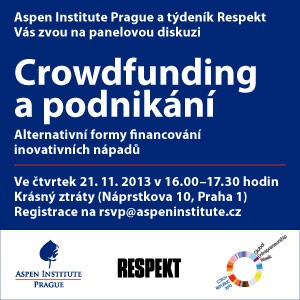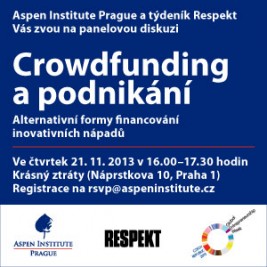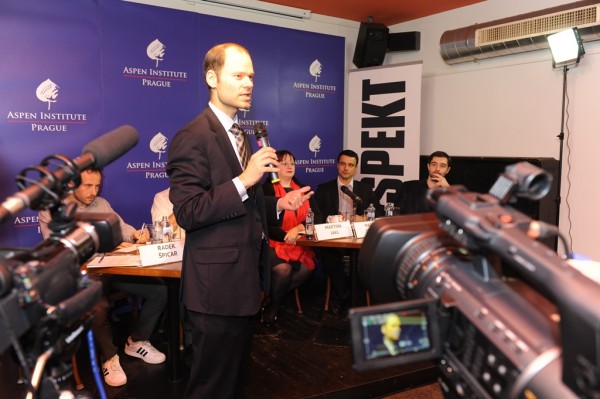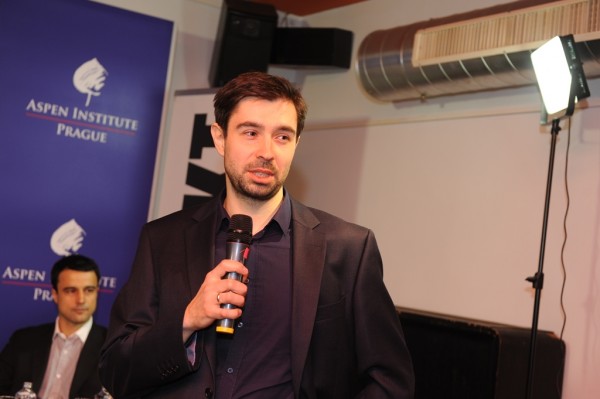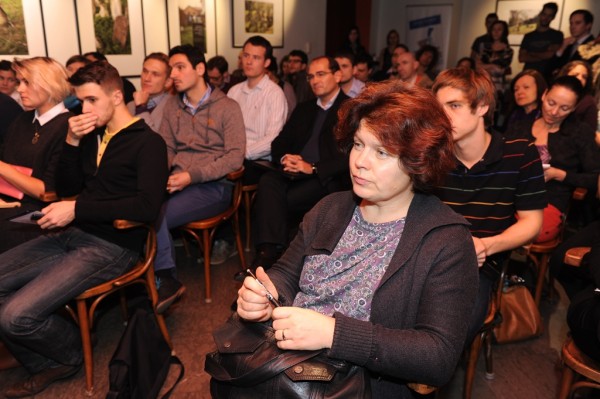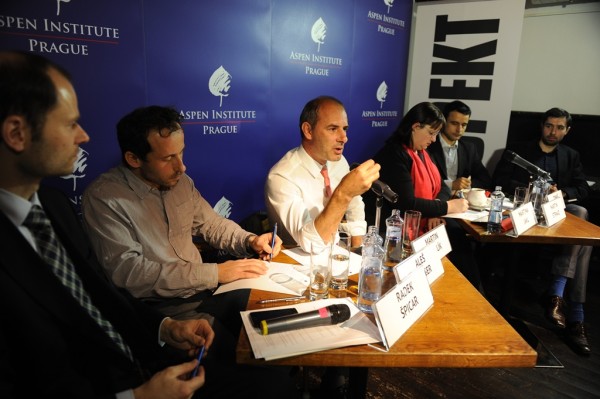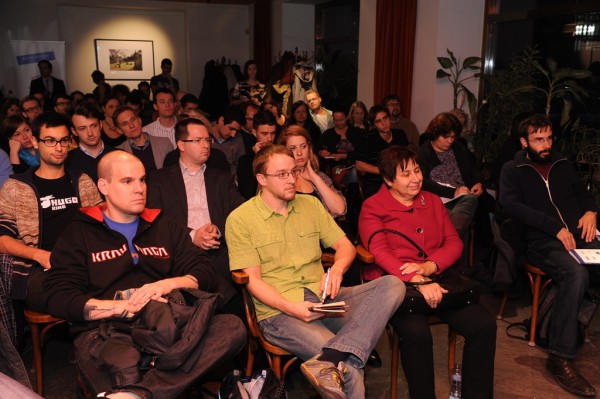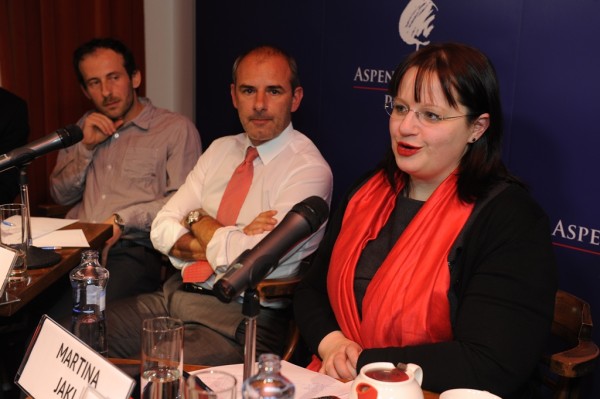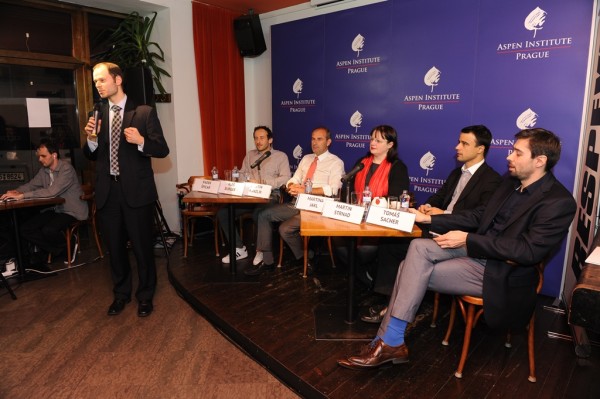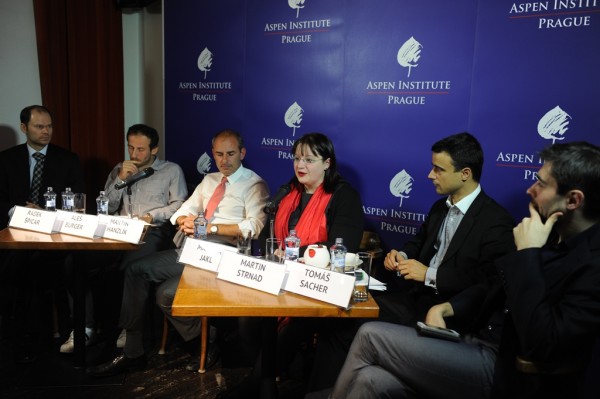The Aspen Institute Prague and Respekt weekly held the public debate Crowdfunding and Entrepreneurship as a part of the Global Entrepreneurship Week. The panel hosted four experts – Aleš Burger (Hithit.cz), Martina Jakl (SwissCzech Technology Transfer), Martin Hanzlík (ATRET Consulting) and Martin Strnad (Havel, Holásek & Partners, attorneys at law) – who discussed the practical, economic and legal aspects of alternative forms of financing innovative business ideas.
In the debate crowdfunding (“CF”) emerged as an interesting tool particularly for start-ups, social enterprises and art-related projects. It primarily functions as a fundraising mechanism but it also has collateral marketing and PR effects. They include awareness-raising or testing of ideas and customers’ mood, positioning and potential sustainability of a start-up project; crowdfunding can also help to identify the minimum number of copies/ quantity of services the entrepreneur shall have in store before going to the market. In more general terms, CF campaigns activate communities as they enhance the feeling of ownership of the project an individual decides to support. These benefits apply mainly to the traditional non-for-profit form where a CF platform is in fact an online-shop of products and services not yet existing, usually with regional or community focus. Another advantage is the opportunity for “the seller” to offer a variety of merchandize, including untypical items that have rather an emotional value (such as an artist´s t-shirt etc.).
The business-oriented form, equity crowdfunding, was recently legally anchored in the US by the JOBS Act, and will be enabled by the new Czech Civil Code after it comes into force (in specific by the Business Corporations Act/ Zákon o obchodních korporacích). Equity CF gives the possibility to gain share in a new company and thus may be an interesting tool for venture capitalists. However, equity crowdfunding is a new institution that falls under security laws which vary from country to country. As such it is yet less attractive than other alternative forms of financing start-ups like finding business angels, equity funds or using public aid (EU programs, funds operated by state agencies, foundations etc.).
How to run a crowdfunding campaign in the Czech Republic and/or abroad? Martina Jakl mentioned that social projects have the potential to attract local rather than international contributors mainly thanks to the moral aspect and closer ties of supporters to projects from their neighborhood and region. Aleš Burger introduced the Hithit.cz portal and its main functions. Based on his experience with over 60 successfully financed projects within one year, Burger stressed the importance of good videos promoting the projects (be it social or fully commercial) to interest broad audience.
In his contribution Martin Strnad briefly described the legal environment of crowdfunding and start-up entrepreneurship in the Czech Republic. He recommended launching start-ups, including CF campaigns in the entrepreneur’s country of residence due to unclear investment regulations pertaining to foreigners. According to Martin Hanzlík, crowdfunding can in the near future complement private equity funds and help start-ups to be more active in R&D and financial markets.
Find out more in the debate´s video record on  .
.

